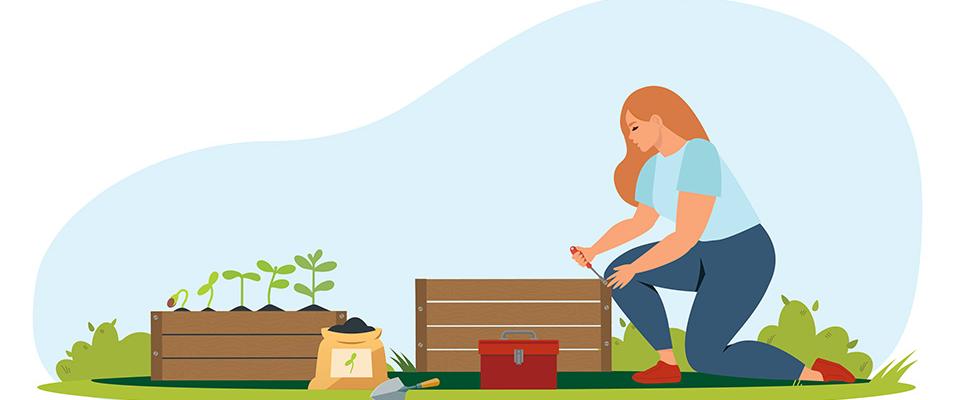COVID-19 has been a wake-up call. The pandemic has shown us that we can—and must—find a different way of organizing our society and economy. We have an opportunity to rebuild in a way that puts people first. We can strive for a Canada that rejects austerity, inequality, racism, colonialism, and oppression and that supports peoples’ dignity, health, and well-being. This is the Canada we need.
 Universal, affordable child care
Universal, affordable child care
Child care was already in crisis before the pandemic hit. Now is the time to fix it. We need a Canada-wide system of child care designed and funded to ensure all children 0-12 years of age can access high quality, affordable and inclusive child care programs that put children’s development and learning at their core. There must also be a commitment to continue to build on, and fund, the Indigenous Early Learning and Child Care Framework.
Universal, affordable child care must also include well-paying secure jobs for child care workers. A good child care system is imperative to women’s financial independence and ensuring gender equality, especially for women from marginalized communities.
 Strong public health care
Strong public health care
A strong health care system is vital to the social and economic well-being of all Canadians. Canada is the only country with a universal health care system care that does not also cover prescription drugs. We need a national, universal pharmacare program that gives every Canadian access to the prescription medication they need.
The pandemic has shown the terrible state of the long-term care system in Canada. Long-term care residents are four times more likely to die of COVID-19 in private facilities than in public facilities. We must transition to a public long-term care system, because if private companies can cut corners to boost their profits, Canadians’ health will be compromised.
Economic relief and just recovery
To create a just and equitable society, we need economic justice for all. We need income supports and social services that aim to eliminate inequalities. An economic plan must address racial and gender inequality, support Indigenous economies, create sustainable economic development, and remove barriers to accessibility for people with all types of disabilities.
Canada now has an opportunity to reform Employment Insurance to address long-standing concerns about equitable access and an inadequate level of support.
 Strong labour laws and good, secure jobs
Strong labour laws and good, secure jobs
Millions of jobs have been lost as a result of the pandemic, raising unemployment to levels our country has not seen for decades. The employment loss has been especially great for women, LGBTQ+, racialized and Indigenous workers, and the public health crisis has also made migrant workers more vulnerable. Precarious work and the gig economy are leaving many people on the constant edge of poverty.
We need governments at all levels to work together to put in place a comprehensive job strategy that includes the expansion of public sector employment. This is also the time to stop privatization, strengthen labour laws to encourage unionization, and ensure decent work for everyone.
Climate justice
The climate crisis calls for economic recovery to include a transition to a green economy. Governments must work towards a zero-carbon economy that supports good, stable jobs and social equity. Any climate action plan must include Indigenous peoples at the forefront. As well, education, youth engagement, direct action participation, local and community initiatives and empowerment are all part of the solution.
 Full rights and sovereignty for Indigenous peoples
Full rights and sovereignty for Indigenous peoples
Any plan to build a better Canada must focus on Indigenous rights and ensuring the full and effective participation of Indigenous Peoples, in line with the standard of free, prior, and informed consent.
Canada needs to close the infrastructure gap and invest in clean water, move quickly on the National Action Plan in response to the MMIWG (Missing and Murdered Indigenous Women and Girls) inquiry and the Truth and Reconciliation Commission’s recommendations, implement the United Nations Declaration on the Rights of Indigenous Peoples, and co-develop health legislation with First Nations, Inuit, and Métis Nations. The government must also address the crisis of ever-rising food prices in the North.
Anti-racism: dismantling racist structures and systems
We cannot move towards a socially and economically just Canada without dismantling system racism that permeates all of Canada’s social, economic, justice, education and political systems. This means developing budgets, policies and social supports that address systemic discrimination and eliminate bias, including anti-Black racism.
Canadian institutions - including governments, the judiciary, the education system, the media, and financial establishments – have been built from a foundation of inequality. We need to completely overhaul our justice system and rebuild it in a way that supports communities and individuals. We need programs to support job creation and employment equity for racialized, Indigenous, and Black communities, including strong employment equity legislation federally and in every province and territory. Anti-racism education for
all Canadians, at every age, is also essential.
Accessibility, support, and dignity for people with disabilities
All Canadians deserve to live with dignity and contribute to the best of their ability, yet a large proportion of people with disabilities are unable to find work that recognizes their skills and accommodates their needs. The federal government took a first step by passing the Accessible Canada Act (ACA), but the Act will need strong regulations to make it work.
We need a Canada where all aspects of society are built in a way that is inclusive and accessible to people of all different physical, mental health or cognitive abilities and does not create barriers to participation.
 Gender equality
Gender equality
COVID-19 has taken an enormous toll on women. In the first few months of the pandemic, nearly 1.5 million women in Canada lost their jobs, and women’s participation in the labour force fell to its lowest level in three decades. As well, domestic violence has been increasing as people isolate in their homes. The most marginalized women, including Black, racialized, Indigenous, and trans women have been hit the hardest. The government must implement a national plan to address domestic violence. Economic supports, education, and child care must be put in place to address gender inequality.
 Equality for LGBTQ2+ people
Equality for LGBTQ2+ people
The pandemic has also seen an increase in isolation amongst LGBTQ2+ people, which can lead to family violence, depression, and suicide. Canada needs to support all LGBTQ2+ people by increasing support for youth, ending conversion therapy, and addressing homophobia and transphobia. Discrimination against trans and gender-variant people is widespread and must be addressed, including better data collection and specifically designed policies to create education and awareness to end discrimination.
Fair taxation
Canada is a wealthy nation, but much of that wealth is concentrated in the few at the top. Economic and social justice means that wealth must be redistributed, and the ultra-wealthy must pay an increased share of public costs. PSAC believes there is no better time than now to ask big businesses to pay their fair share through a higher tax rate on profits to help fund initiatives such as child care and pharmacare to benefit the many and not just the few.
 Member Login
Member Login



